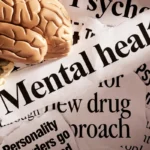Enhancing Mental Well-Being in Daily Life
Mental well-being is essential for leading fulfilling life. Enhancing mental well-being involves adopting practical strategies. These strategies can be easily integrated into daily routine. Individuals seeking improvement in their mental health benefit from variety of techniques. These techniques are tailored to suit different lifestyles and preferences.
Practice Mindfulness Daily
One of the most effective strategies for enhancing mental well-being is incorporating mindfulness into your daily routine. Mindfulness involves focusing on present moment. This helps reduce anxiety and promotes overall mental clarity. Practice mindfulness through meditation. Breathing exercises. Or simply paying attention to your surroundings during daily activities.
Establish a Supportive Social Network
Having strong support network is vital for mental well-being. Surround yourself with friends and family who uplift you. Engage in social activities. Whether in-person or online. Foster connection. Open communication with loved ones provides a platform for sharing feelings. And experiences. Reinforcing sense of belonging and security.
Engage in Physical Activity
Physical exercise doesn’t just improve physical health; it significantly boosts your mental well-being too. Engaging in regular physical activity releases endorphins. Endorphins are the body’s natural mood lifters. Find activity you enjoy—be it jogging dancing, or yoga—and make it regular part of your life. Aim for at least 30 minutes of exercise most days of week. This is suggested by health experts.
Adopt a Healthy Diet
Your diet plays crucial role in mental health. Consuming balanced diet rich in fruits vegetables, whole grains. Lean proteins can greatly influence your mood. Foods high in omega-3 fatty acids. Salmon and walnuts are known to have positive impact on brain function. Additionally staying hydrated is vital; dehydration can lead to fatigue and irritability.
Prioritize Sleep
Quality sleep is essential for mental well-being. Aim for 7-9 hours of restorative sleep each night. Establish calming bedtime routine. Limit screen time before bed. Create a comfortable sleep environment. Poor sleep can negatively affect concentration. Mood and overall mental health so it’s important to make sleep a priority.
Set Realistic Goals
Setting and achieving personal goals can boost your self-esteem and mental resilience. Start by identifying what you want to achieve in both your personal and professional life. Break these goals into manageable steps. Allow yourself to celebrate small victories along the way. This process not only gives you direction but also reinforces sense of purpose.
Limit Social Media and News Consumption
While staying informed is important excessive exposure to social media and news can lead to anxiety and stress. Set boundaries around your consumption of digital content. For instance designate specific times during the day to check news or social media. Consider unfollowing accounts that don’t contribute positively to your mental well-being.
Explore Creative Outlets
Engaging in creative activities can serve as excellent avenue for self-expression. Whether it’s painting. Writing or playing musical instrument. Creative outlets allow you release emotions and stress. You don’t have to be expert; simply indulge in what brings you joy. This can significantly enhance your mental state and promote relaxation.
Practice Gratitude
Fostering attitude of gratitude can transform your mindset. Take a few minutes each day. Reflect on what you’re thankful for. Whether it’s supportive friend or beautiful sunset. Keeping gratitude journal can help solidify this practice. It allows you to look back and appreciate positive moments during tough times.

Utilize Professional Resources
Don’t hesitate to reach out for professional help if you feel overwhelmed. Therapists counselors, or support groups can provide valuable tools for dealing with stress and anxiety. Resources such as [MentalHealth.gov](https://www.mentalhealth.gov/) offer wealth of information. And support options tailored to your needs.
These strategies into your daily life can significantly enhance your mental well-being. Remember improving mental health is journey not destination—take small steps. Be patient with yourself as you work towards more balanced life.
For further insight into mental health practices. Consider visiting [Mind.org](https://www.mind.org.uk/) which provides range of resources dedicated to mental well-being.
The Impact of Social Connections on Mental Health
The importance of social connections in our lives can’t be overstated. Research shows maintaining strong relationships is not just beneficial for emotional support but crucial for mental well-being. In today’s fast-paced world many individuals struggle to form and maintain these connections. They often feel isolated. Or overwhelmed by life’s challenges. Understanding how these relationships impact mental health can lead to healthier, happier lives.
Studies consistently demonstrate a correlation between social support and improved mental health. Individuals who engage in meaningful relationships report lower levels of anxiety and depression. This can be attributed to several factors. Including emotional support we gain from friends and family. A sense of belonging and shared experiences that foster resilience.
- Emotional Support: Close friend or partner can provide comforting presence during challenging times. This helps to reduce feelings of anxiety.
- Sense of Belonging: Being part of community or social group fulfills our innate need to connect with others.
- Shared Experiences: Engaging in activities together can enhance our outlook on life. This provides vital coping strategies.
For those struggling with loneliness it’s essential to seek out new social connections. This could mean joining local club, attending community events or utilizing social media platforms to connect with like-minded individuals. The key is to take small steps. Initiating contact with others might feel daunting. But the rewards are significant. It’s also worth noting that quality of these connections matters immensely. A few deep trusting friendships can outweigh numerous superficial ones. Investing time in relationships that foster open communication and understanding is crucial for mental well-being. Healthy relationships encourage vulnerability. They create a safe space where individuals feel comfortable sharing their thoughts and feelings.
Positive Effects of Social Connections
Building solid social networks leads to positive changes in various aspects of life
- Stress Reduction: Engaging with loved ones can help mitigate stress levels by providing support system that offers encouragement and advice.
- Increased Happiness: Social interactions release endorphins. These elevate mood and create feeling of joy.
- Improved Coping Mechanisms: Friends and family can offer different perspectives during tough times. This allows for better problem-solving.
A study conducted by the American Psychological Association highlights that individuals who feel socially connected have lower levels of psychological distress. This shows that fostering social connections can directly impact emotional well-being. Facilitating a healthier mindset.
Nevertheless not every relationship enriches our lives. Toxic relationships can lead to increased stress and anxiety. It’s essential to recognize impact of negative connections and, when necessary create boundaries to protect mental health. Surround yourself with people who lift you up. Support your growth.
Nurturing Relationships for Better Mental Health
To strengthen social connections, consider these strategies:
- Prioritize Relationships: Set time aside for friends and family. Make them critical component of your daily routine.
- Engage in Community Activities: Participate in local events. Take advantage of volunteer opportunities. Meet new people and forge meaningful bonds.
- Practice Active Listening: Show genuine interest in lives of your friends and family. Listening fosters deeper connections.
- Stay in Touch: A simple text or call can maintain relationships. This is essential when physical proximity isn’t feasible.
By investing time and effort into social connections we pave way for improved mental well-being. The goal is to cultivate an environment where everyone feels valued. And listened to. Remember, prioritizing your social life is crucial step towards achieving better emotional health.
For further information on mental health and relationships visit National Institute of Mental Health or explore resources provided by Verywell Mind to enhance understanding and support mental well-being.
Mindfulness Practices and Their Role in Mental Well-Being
Mental well-being has become crucial focus in fast-paced world where stress and distractions abound. One effective way to enhance this aspect of life is through mindfulness practices. These techniques not only foster a deeper connection to present moment but also play pivotal role in promoting emotional resilience. They also enhance mental clarity.
Mindfulness refers to the practice of being fully present and engaged in current moment. Acknowledging thoughts and feelings without judgment. This approach has been scientifically linked to myriad benefits for mental health. By cultivating mindfulness, individuals can reduce anxiety. Improve emotional regulation. Enhance self-awareness.
Types of Mindfulness Practices
There are several mindfulness practices that can be easily integrated into everyday life. Here are few effective methods:
1. Mindful Breathing
Mindful breathing is one of the simplest yet most powerful techniques. Focus on your breath and observe it as it enters and leaves your body. When your mind wanders gently bring your attention back to your breath. This practice can be done anywhere, anytime and it only takes few minutes.
2. Body Scan
Body scan helps you become more aware of physical sensations. Lie down or sit in quiet place and slowly shift your awareness through different parts of body. Start from your feet and move up to your head. Notice any tension or discomfort you might feel. This practice helps in releasing stress and promoting relaxation.
3. Mindful Eating
Mindful eating encourages you to savor food with your senses. Pay attention to the colors textures and flavors of each bite. Chew slowly and place your utensils down between bites. This method not only enhances your enjoyment of food but also aids digestion. It allows you to recognize hunger and fullness cues more accurately.
4. Walking Meditation
Walking meditation combines movement with mindfulness. Walk slowly and focus on the sensation of each step. Notice how your foot makes contact with ground. Observe the surroundings without getting caught up in thoughts. It can be practiced in any setting, from a park to your neighborhood.
5. Gratitude Journaling
Gratitude journaling involves writing down things for which you are grateful. Set aside few minutes each day to note what you appreciate. This practice shifts your focus from what is lacking in your life to abundance and positivity. Over time it nurtures sense of contentment and well-being.
Incorporating these mindfulness practices into your daily routine can significantly contribute to your mental and physical health. Even small moments of mindfulness can have lasting benefits.
- Mindful Breathing: Focusing solely on your breath can anchor thoughts. And bring calmness to your mind.
- Body Scan: This progressive relaxation technique involves paying attention to different parts of body. Helping to release tension.
- Mindful Walking: Integrating mindfulness into walking allows individuals to connect with their surroundings. While promoting physical health.
- Mindful Eating: Paying attention to flavors textures and sensations of food. Can encourage healthier eating habits.
Each practice can be adapted to different settings. Whether at home in workplace, or commuting. This makes mindfulness accessible to anyone willing to put in effort.
Benefits of Mindfulness on Mental Well-Being
Research shows that adopting mindfulness practices can significantly enhance mental well-being.Practitioners often report increased ability to bounce back from challenges. They also note recovering from setbacks.
| Benefit | Description |
|---|---|
| Stress Reduction | Mindfulness helps lower stress hormones. This enables individuals to cope better with daily stressors. |
| Improved Focus | Regular practice enhances attention span and concentration Offering better performance at work. Or at school. |
| Emotional Regulation | Mindfulness fosters awareness of emotions. Allowing individuals to respond rather than react impulsively. |
| Greater Resilience |
Undoubtedly these advantages contribute to holistic approach to mental health. They enable individuals in navigating life’s ups and downs more effectively.
Getting Started with Mindfulness Practices
If you’re new to mindfulness. Begin your journey with just few minutes a day. Here’s simple plan to ease into mindfulness
- Find quiet space where you can sit comfortably.
- Set timer for 5 to 10 minutes.
- Focus on your breath. Notice the rise and fall of your chest or the sensation of air entering your nostrils.
- When distractions arise. Gently bring your focus back to breath without judgment
- Gradually increase duration as you become more comfortable with practice.
Over time mindfulness can become meaningful part of your daily routine. Consider using guided mindfulness apps. Apps like Headspace or Calm can support your practice.
Mindfulness into Daily Life
Integrating mindfulness into everyday activities can further enhance its benefits. Consider these techniques.
- **Mindful Walking:** While walking pay close attention to every step. Feel ground beneath your feet, the movement of your muscles and rhythm of your breathing.
- **Eating Mindfully:** Instead of consuming meals hastily savor each bite. Notice texture, taste and aroma of your food. Being present during mealtime can improve digestion and help control overeating.
- **Listening with Intention:** During conversations or lectures, listen fully. Treat listening as an active participatory process. Focus on other person’s words without planning your response in advance. This assists in building stronger connections.
- **Daily Routine Mindfulness:** Incorporate mindfulness into ordinary tasks like brushing teeth or washing dishes. Concentrate on sensations, smells and sounds involved in each task. This practice transforms mundane activities into opportunities for mindfulness.
- **Tech-Free Moments:** Allocate times during day to disconnect from digital devices. Use these moments to reconnect with yourself. Reduce stress and increase self-awareness.
- **Body Scan:** Perform a body scan by mentally checking in with each part of your body starting from feet. Work your way up. This technique relieves tension and enhances body awareness.
- **Gratitude Practice:** At end of day, reflect on moments for which you are grateful. Write them down. Gratitude journals can shift focus from what’s lacking to what’s abundant.
- **Morning Stretching:** Begin your day with gentle stretching. Focus on how your body feels. This acts as a natural wake-up call and prepares you for day ahead.
Mindfulness is not a one-size-fits-all practice. The key is consistency. By integrating these techniques into your daily routine you can cultivate a more mindful life. Enhanced mental well-being and emotional resilience will follow. Start small and gradually deepen your practice.
- Practice mindful listening in conversations. Fully engage without preparing your response.
- Use reminders like sticky notes around living space to prompt moments of mindfulness.
- Dedicate time for mindful reflection. At end of the day allow yourself to process thoughts and emotions.
Every small effort contributes to larger goal of mental well-being.
For those looking to deepen understanding of mindfulness resources from the Meditation Museum can provide invaluable insights. They also offer further guidance.
Mindfulness is powerful ally for anyone seeking to improve their mental well-being. By incorporating simple practices into daily life, individuals can enhance emotional health reduce stress. Cultivate a more fulfilling, present-centered existence.
Understanding the Relationship Between Nutrition and Mental Health
Nutrition plays significant role in mental health. It influences mood behavior and even risk of mental health disorders. Understanding this relationship can empower individuals to make dietary choices that benefit their mental well-being. Numerous studies have shown that people who consume well-balanced diet. A diet rich in essential nutrients leads to better mental health outcomes. This is compared to those with poor dietary patterns.
The Impact of Nutrients on Mental Health
Certain nutrients have been specifically linked to mental health. These include:
- Omega-3 Fatty Acids: Found in fish flaxseeds and walnuts, omega-3s are essential for brain health. Research suggests these fats can significantly lower symptoms of depression This can also mitigate anxiety.
- Vitamins: Vitamins such as B6 B12 and D are crucial for maintaining serotonin levels—a neurotransmitter that stabilizes mood. Low levels of these vitamins have been linked to a higher prevalence of mood disorders.
- Minerals: Magnesium and zinc are important for brain function. A deficiency in these minerals can lead to increased anxiety Restlessness.
Foods That Support Mental Well-Being
Variety of nutrient-rich foods into your diet can enhance mental health. Here’s list of foods that support cognitive function. They also aid emotional health:
- Fatty fish like salmon and mackerel
- Nuts and seeds especially walnuts and flaxseeds
- Leafy greens such as spinach. Kale
- Whole grains (oats quinoa. Brown rice)
- Fruits berries, bananas oranges
Adding these foods to your daily meals can create balanced diet. A diet that nourishes both body and mind. Mediterranean diet is rich in these elements. It has been linked to lower rates of depression and anxiety.
The Gut-Brain Connection
Gut health can influence mental well-being through what’s known as gut-brain axis. This pathway allows for communication between gut microbiome and brain. Diet high in processed foods can disrupt balance. Leading to inflammation that may contribute to mental health issues. Probiotic-rich foods—like yogurt kefir and fermented vegetables—help to maintain healthy gut microbiome. Promoting emotional health.
Practical Tips for Enhancing Nutrition for Better Mental Health
- Plan Your Meals: Take time to prepare balanced meals that include variety of food groups. This ensures you getting all necessary vitamins and minerals.
- Eat Regularly: Skipping meals can lead to fluctuations in blood sugar levels. This affects your mood. Aim for three meals a day. Supplement with healthy snacks.
- Stay Hydrated: Dehydration can cause fatigue and irritability. Ensure you drink enough water throughout day.
- Mindful Eating: Practice mindful eating. Pay attention to your meal. This can help you recognize when you’re truly hungry. Also when you’re satisfied. This prevents overeating.
Monitor Your Diet
It’s essential to pay attention to how different foods affect your mood and mental clarity. Keeping food diary can be useful tool to track which meals positively or negatively impact your mental state. By identifying patterns. You can make dietary adjustments accordingly.
The evidence supporting the connection between nutrition and mental health is compelling. For detailed information and guidance on how nutrition affects mental health check out resources from MentalHealth.gov and NAMI These organizations provide valuable insights and support for individuals looking to improve their mental well-being through nutrition.
Understanding and improving your diet can lead to better mental health outcomes. By taking small steps towards healthier eating habits. You can enhance your mood. Reduce anxiety. And boost your overall mental well-being.
Overcoming Stigma: Conversations Around Mental Health Awareness
Stigma surrounding mental health remains significant barrier to individuals seeking help or discussing their struggles. To overcome this stigma we need to foster open conversations. These encourage understanding and empathy. Changing the dialogue around mental health can empower people. It helps them seek necessary support without fear or shame. Initiating discussions about mental well-being can take various forms. These range from personal stories shared in social settings to organized campaigns aimed at raising awareness.
One effective method to address stigma is through education. Many people hold misconceptions about mental illnesses due to lack of knowledge or exposure. Educational programs can help provide clarity and promote more nuanced understanding. Schools and workplaces can implement workshops that explore realities. These include mental health conditions, their prevalence and their impact on daily life. These initiatives can dismantle stereotypes. They encourage compassion. They ultimately create safer environments for those struggling.
Peer support networks play vital role in this conversation. When individuals with similar experiences come together. They can share insights and validate one another’s feelings. Formalized support groups serve not only as resource for individuals. But also as platforms for reducing stigma For example groups can facilitate discussions about specific topics like anxiety. Depression or PTSD, helping members feel less isolated. The shared experience reinforces the message that one is not alone in their struggles.
Building community awareness campaigns can also significantly affect public perceptions of mental health. Initiatives like NAMI (National Alliance on Mental Illness) promote awareness through events like Mental Illness Awareness Week. These campaigns can utilize social media Local workshops and community events to reach diverse audiences. When communities rally together to highlight mental well-being. They create collective consciousness that shifts perceptions and attitudes.
Furthermore it is essential to create safe spaces where people can openly share their mental health experiences without judgment. Whether in workplaces or social gatherings. Encouraging respectful dialogue can make tremendous difference. For instance, implementing policies that support mental health discussion in workplace leads to culture. Where individuals feel empowered to share their experiences. This not only promotes transparency but also enhances overall organizational well-being.
Media representation plays critical role in shaping public attitudes toward mental health. Positive portrayals of mental health challenges in movies. TV shows and news stories can humanize these experiences and reduce stereotypes. However negative or sensationalized depictions can reinforce stigma. Advocating for accurate representation can lead to more informed public. Organizations such as the Mental Health America encourage responsible media coverage to mitigate harm and promote understanding.
To effectively combat stigma we must also address intersectionality—the idea that various social identities overlap to shape unique experiences of discrimination or privilege. Different groups may face varying levels of scrutiny or acceptance regarding mental health issues based on cultural, socioeconomic or racial factors. Engaging diverse communities in these conversations ensures that voices from all backgrounds are heard and acknowledged. This enhances the collective understanding of mental well-being.
Support from influential figures. Including politicians, celebrities and community leaders can also bolster these efforts. When public figures openly discuss their mental health journeys it normalizes the conversation. It inspires others to speak up. For example, high-profile individuals speaking candidly about their experiences can reduce feelings of shame and encourage audiences to seek help.
Technology has emerged as crucial tool in facilitating these conversations. Social media platforms allow individuals and organizations to disseminate information quickly and effectively. Apps dedicated to mental well-being can provide resources. Connect users with local support services. Moreover online forums often offer discreet spaces for discussions, allowing people to engage without pressures of face-to-face interactions.
Perhaps one of the most important aspects of overcoming stigma is to cultivate empathy and understanding in everyday interactions. Taking time to listen to someone’s experiences can significantly impact their mental well-being. Compassionate ear can help validate feelings and encourage individuals to seek further support. As we work to change narrative surrounding mental health. Let’s remember every conversation counts.
Engaging in constructive discussions about mental health promotes culture of acceptance and understanding. By sharing knowledge supporting one another. And leveraging resources. We collectively take steps toward minimizing stigma and fostering an environment conducive to mental well-being. Together, we can change narrative and empower everyone to prioritize their mental health without fear or shame.
For more resources and information about mental well-being and awareness please visit mentalhealth.gov.
Conclusion
As we navigate complexities of modern life mental well-being has emerged as essential component of overall health. Enhancing mental well-being requires actionable strategies. They can be seamlessly integrated into daily routines. By adopting simple practices, individuals can foster resilience against stress and emotional challenges.
One primary strategy for enhancing mental well-being in daily life is implementation of structured routines. Establishing daily rhythm creates sense of predictability helping to reduce anxiety. Whether it’s waking up at same time each day or setting aside specific moments for relaxation. Routines instill sense of control. Additionally, engaging in physical activity is crucial. Regular exercise even in small doses, releases endorphins. It boosts mood acting as natural mood lifter. Short bursts of movement throughout day can make significant difference in mental clarity and emotional stability.
Moreover impact of social connections on mental health cannot be overstated. Human beings are inherently social creatures Isolation can lead to detrimental effects on mental health. Strengthening relationships with family, friends and community members provides support. It fosters a feeling of belonging and enhances overall happiness. Individuals can actively nurture these connections by scheduling regular meet-ups. Alternatively simply checking in with loved ones helps Even virtual connections through technology can maintain social ties, reducing feelings of loneliness and depression.
Mindfulness practices are instrumental in promoting mental well-being. By staying present and aware individuals can learn to manage stress more effectively. Techniques such as meditation, deep breathing exercises and yoga encourage a non-judgmental observation of thoughts and feelings. This awareness can significantly decrease negative thinking patterns. It can also promote a balanced perspective on life’s challenges. Additionally dedicating just few minutes each day to mindfulness can cultivate sense of calm and clarity. It also improves emotional regulation.
Nutrition also plays critical role in mental health. What’s on our plate can have direct impact on how we feel. Consuming balanced diet rich in whole foods such as fruits, vegetables whole grains and lean proteins, can support brain health and enhance mood. Certain nutrients. Like Omega-3 fatty acids found in fish. Are known to improve cognitive function and reduce symptoms of anxiety and depression. By paying attention to nutritional choices individuals can empower themselves to contribute positively to mental health
Despite the increasing recognition of mental health issues. Stigma still poses significant barrier to open discussions. Overcoming stigma starts with education and awareness. Engaging in conversations about mental health, whether in personal or public settings helps to normalize these discussions. Encouraging stories of recovery and resilience can inspire others to seek help without fear of judgment. Moreover. By advocating for mental health awareness in communities we can collectively dismantle harmful stereotypes. And foster more supportive environment.
Communities and institutions also play crucial role in enhancing mental well-being. Accessible mental health resources such as counseling services support groups and educational workshops promote awareness. They facilitate discussions. By investing in mental health initiatives in schools, workplaces and community centers we cultivate culture. A culture that values well-being and empowers individuals to prioritize mental health.
Every person deserves to thrive mentally, emotionally and socially. By acknowledging the importance of mental well-being and integrating practical strategies into daily lives we can create robust support system for ourselves and those around us. Remember, mental health isn’t just absence of mental illness. It’s about flourishing in all aspects of life. Feeling good involves much more than positive thinking. It encompasses relationships routines, practices and conversations about mental health. We must remain committed to personal growth. Social connection and mindful living are crucial. Making these vital components a priority.
The journey to improving mental well-being is ongoing and requires collective effort. As we continue to break down barriers around mental health and prioritize our emotional wellness we not only enhance our own lives. We also pave way for others to do the same. Our mental well-being is interconnected. By supporting ourselves and each other we can foster healthier, more resilient society. Let us take these steps together. Celebrating every milestone as we cultivate culture where mental health matters and thrives.
“The Happiness Advantage: How a Positive Brain Fuels Success in Work and Life” by Shawn Achor
“The Power of Now: A Guide to Spiritual Enlightenment” by Eckhart Tolle
“Mindfulness: A Practical Guide to Finding Peace in a Frantic World” by Mark Williams and Danny Penman










